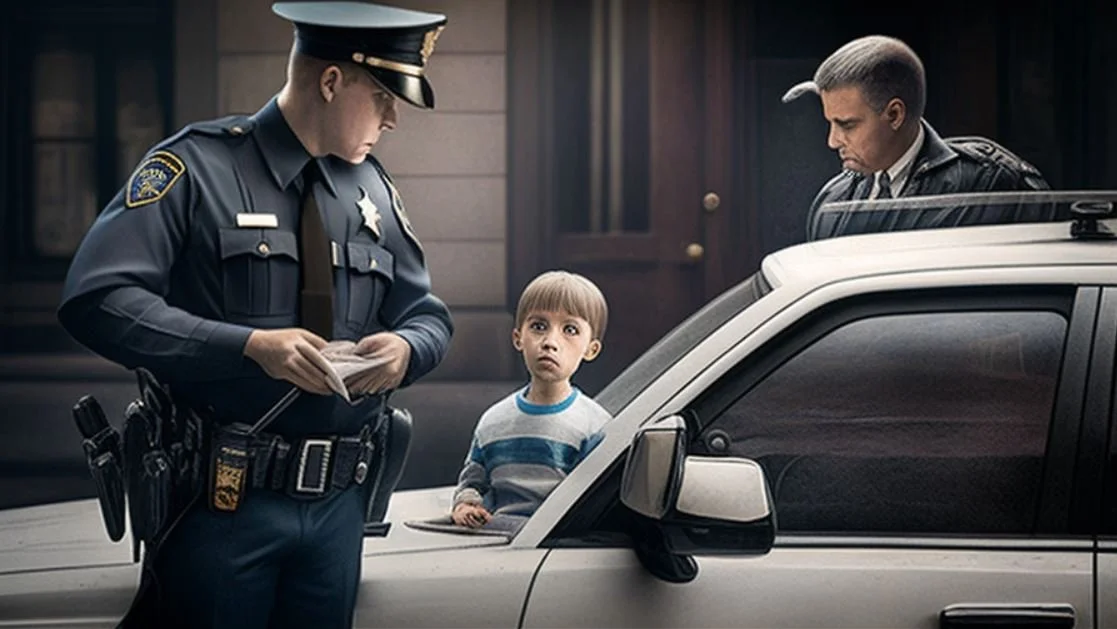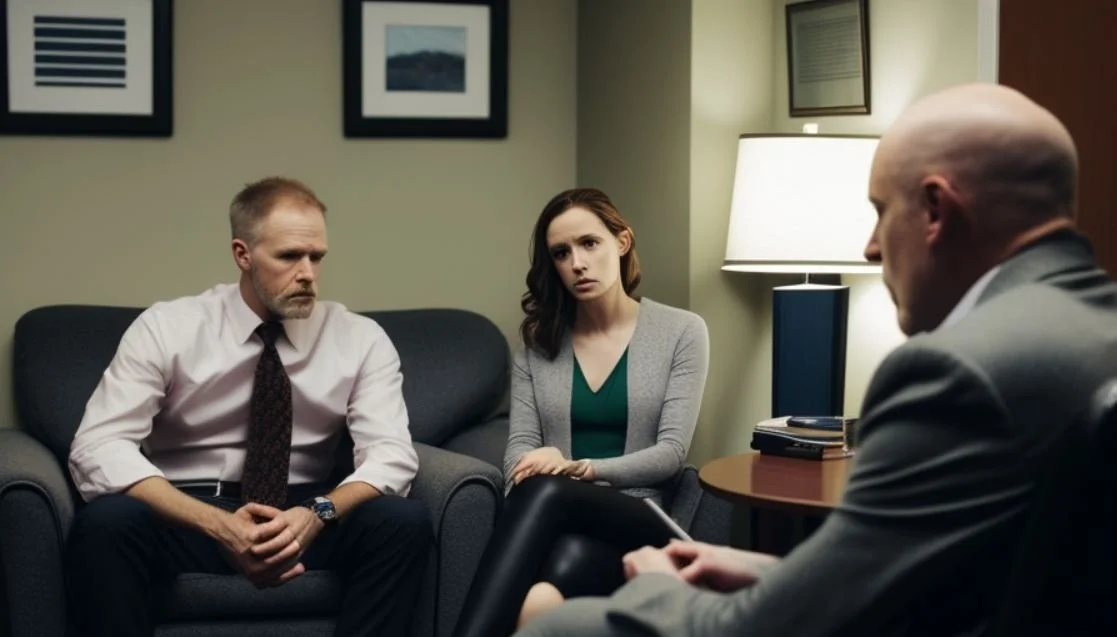Will Police Enforce Child Custody?
Custody battles can be emotionally and financially draining for both parents and children.
When a court issues a custody order, it outlines the terms of custody and visitation arrangements for the child. However, sometimes parents may fail to comply with the court's order, resulting in disputes and even legal action.
In such situations, one may wonder whether the police can enforce a custody order.
Will police enforce child custody?
The answer is not a straightforward one. In general, the police will not get involved in custody disputes unless there is evidence of criminal activity, such as kidnapping or domestic violence.
While police officers have the power to intervene in certain child custody circumstances, enforcing a custody order is usually a civil matter that falls under the jurisdiction of family law courts.
In this blog post, we'll explore the legalities surrounding the enforcement of custody orders and the role of the police in such situations.
Related Questions
-
Local police may be called upon to assist in enforcing a custody order, but their ability to do so depends on the circumstances and the specific laws in the jurisdiction where the custody order was issued.
In general, custody orders are issued by family law courts and are civil in nature, meaning they are not criminal matters.
Therefore, enforcing a custody order is typically the responsibility of the parties involved and their attorneys, and it is not the primary duty of law enforcement.
However, there are situations where local police may become involved in enforcing a custody order.
For example, if a parent violates a custody order by refusing to return a child to the other parent, the non-custodial parent may seek the assistance of law enforcement to retrieve the child.
In such cases, the police may accompany the custodial parent to retrieve the child or may arrest the non-custodial parent for violating the custody order.
Additionally, if there is evidence of criminal activity, such as kidnapping or domestic violence, the police may become involved in a custody dispute.
In such cases, the police may investigate the situation and take appropriate action to ensure the safety of the child.
It's important to note that the role of the police in enforcing custody orders may vary by jurisdiction, and the specific laws and procedures may differ. It's recommended that parents involved in a custody dispute consult with a family law attorney to understand their rights and responsibilities, as well as the options available to them for enforcing a custody order.
-
If a parent violates a custody order, the other parent can seek enforcement through the family law court. The following are the steps that can be taken to enforce a custody order:
File a Motion for Contempt: The custodial parent can file a motion for contempt with the family law court. The motion must detail the specific ways in which the other parent has violated the custody order. The court will then set a hearing to determine whether the non-compliant parent is in contempt of the order.
Attend the Contempt Hearing: At the hearing, both parents will have the opportunity to present evidence to support their positions. The court will then make a determination as to whether the non-compliant parent is in contempt of the custody order. If the court finds that the parent is in contempt, it can impose sanctions, such as fines or even jail time.
Request Modification of Custody Order: In some cases, a custody order may need to be modified if one parent consistently violates the order. The custodial parent can file a petition with the court to modify the custody order to ensure that it is being followed.
Seek the Assistance of Law Enforcement: If the non-custodial parent is withholding the child, the custodial parent may also seek the assistance of law enforcement to retrieve the child. However, the police will generally only get involved in custody disputes if there is evidence of criminal activity, such as kidnapping.
It's important to note that violating a custody order is considered a serious matter and can have serious consequences.
If a parent repeatedly violates a custody order, the court may ultimately modify the custody order to restrict the parent's visitation or even grant sole custody to the other parent.
Therefore, it's important for parents to comply with custody orders and work to resolve any disputes through the family law court.
What is a custody order?
A custody order is a legal document that outlines the terms of custody and visitation arrangements for a child. It is issued by a family law court and is legally binding on both parents. A custody order typically addresses issues such as:
Who will have legal custody of the child (i.e., the right to make major decisions regarding the child's welfare, including education, healthcare, and religion).
Who will have physical custody of the child (i.e., where the child will live).
A visitation schedule for the non-custodial parent.
Any restrictions or conditions on visitation, such as supervised visitation or restrictions on overnight visits.
A custody order is typically issued as part of a divorce or separation proceeding, but it can also be issued in cases where parents were never married or were unmarried at the time of the child's birth.
Enforcing a custody order
When a parent fails to comply with a child custody order, the other parent can file a motion with the family law court to enforce the order.
The court may then issue a contempt order, which requires the non-compliant parent to comply with the custody order or face legal consequences, such as fines or even jail time.
However, enforcing a custody order can be a complex process that can take time and money.
The court may require evidence that the other parent is not complying with the custody order, and this evidence may include witness testimony, photographs, and other documentation.
The court may also hold a hearing to determine whether the non-compliant parent is in contempt of the custody order.
Role of the police in enforcing a custody order
While the family law court has the authority to enforce child custody orders, the police can play a role in certain circumstances. In general, the police will not get involved in child custody disputes unless there is evidence of criminal activity, such as kidnapping or domestic violence.
For example, if a parent takes a child out of state or out of the country without the other parent's consent, the police may become involved in a custody dispute. This is because taking a child out of state or out of the country without the other parent's consent is considered kidnapping under federal and state laws.
Similarly, if a parent refuses to return a child to the other parent at the end of a scheduled visitation, the police may intervene if there is evidence that the non-custodial parent is withholding the child illegally.
In such cases, the police may accompany the custodial parent to retrieve the child, or they may arrest the non-custodial parent for violating the custody order.
However, in most cases, the police will not intervene in custody disputes unless there is evidence of criminal activity.
This means that if a parent is not complying with a custody order, the other parent will need to go through the family law court to enforce the order.
Alternative dispute resolution methods
Enforcing a custody order through the family law court can be a time-consuming and expensive process.
In some cases, it may be possible to resolve custody disputes through alternative dispute resolution methods, such as mediation or arbitration.
Mediation involves a neutral third party who helps the parents reach an agreement regarding custody and visitation arrangements.
The mediator does not make decisions for the parents but helps them communicate effectively and find a mutually acceptable solution.
Mediation can be less adversarial and less costly than going to court, and it can also help to preserve the relationship between the parents.
Arbitration is another alternative dispute resolution method that involves a neutral third party who makes a binding decision regarding custody and visitation arrangements.
Unlike mediation, the arbitrator has the authority to make a final decision, which the parents must follow. Arbitration can be faster and less formal than going to court, but it can also be more expensive.
It's important to note that alternative dispute resolution methods may not be appropriate in cases where there is a history of domestic violence or abuse. In such cases, it may be necessary to go through the family law court to ensure the safety and well-being of the child.
Conclusion
In summary, enforcing a custody order is primarily a civil matter that falls under the jurisdiction of family law courts.
While the police can intervene in certain circumstances, such as cases of kidnapping or domestic violence, they generally will not get involved in custody disputes unless there is evidence of criminal activity.
If a parent is not complying with a custody order, the other parent can file a motion with the family law court to enforce the order. However, this can be a complex and time-consuming process that may require evidence and a court hearing.
Alternative dispute resolution methods, such as mediation or arbitration, can be an effective way to resolve custody disputes outside of court.
However, it's important to consider whether these methods are appropriate in your particular case, especially if there is a history of domestic violence or abuse.
Ultimately, the most important thing to consider in any custody dispute is the best interests of the child.
Custody arrangements should be made with the child's needs and well-being as the top priority, and all parties involved should work towards finding a solution that is in the child's best interests.












Inside the Investigation: A Deeper Dive into Police Detective Benefits